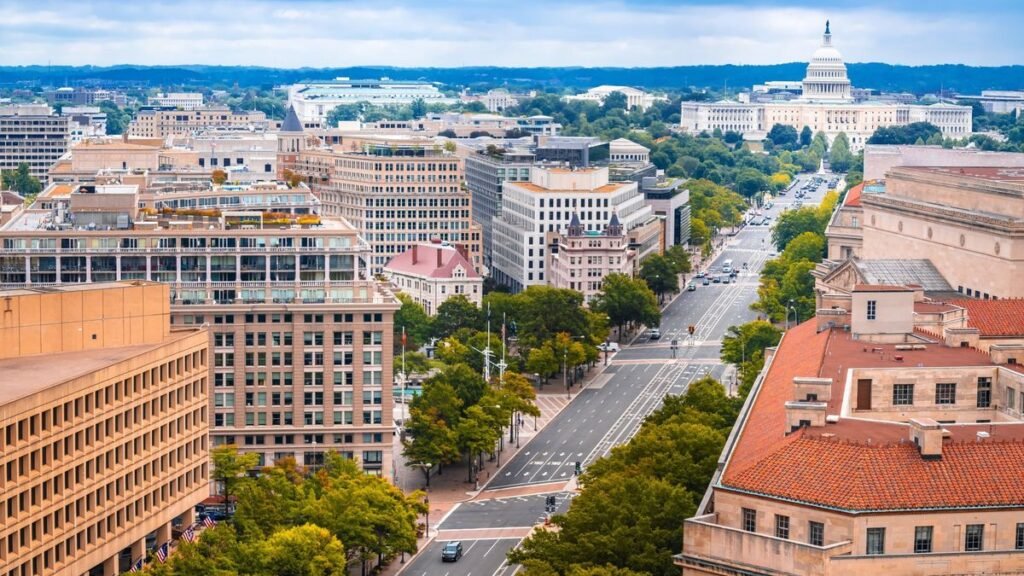The tourism landscape in Washington, D.C. remains stable despite recent political upheaval, following President Trump’s deployment of National Guard troops earlier this month. While the situation has raised some concerns, tourism officials are working diligently to mitigate any adverse effects on the city’s convention and events sector.
Elliott Ferguson, the CEO of Destination DC, reported that stakeholders in the tourism sector have been proactive in addressing these issues. “We’ve reached out to all scheduled groups to facilitate dialogue and equip them with the information needed to communicate with their attendees regarding the situation in the city,” Ferguson explained. “Importantly, we haven’t lost any conventions as of yet.”
As Washington grapples with fresh tourism challenges, the President’s intervention to deploy federal troops stemmed from claims of a “crime emergency.” This action came even as D.C. Mayor Muriel Bowser highlighted a 26% drop in violent crime, marking a historical decrease to levels not seen in 30 years. Contrarily, a White House report raised concerns about manipulated local crime statistics, citing D.C.’s homicide rate as the fourth-highest in the nation.
Although it is early to ascertain broader consequences on tourism, these recent developments inject a degree of uncertainty into a sector already hampered by declines in international travel and a slowdown in hotel revenue. According to forecasts by Tourism Economics, international visitors to D.C. could decrease by 6.5% in 2025, largely driven by reduced visitation from Asia and Canada.
Ferguson emphasized that while the overall visitor numbers in D.C. may remain flat compared to the record 27.2 million visitors in 2024, the unique spending behavior of international tourists significantly impacts local economic health, given their longer stays and greater expenditures.
Perception versus Data
Kristin Lamoureux, a professor and graduate program director for hospitality and tourism management at Virginia Tech University, underscored that decisions regarding tourism are largely influenced by perceptions of safety and security rather than cold statistics. “Tourism is fundamentally about perception,” Lamoureux stated. “Tourists typically don’t delve deeply into the realities; their understanding is often driven by their perceptions.”
The military presence in the city can elicit different responses depending on the visitor demographic. Lamoureux noted that while local visitors may welcome increased security, international tourists often view a military presence with apprehension. The impact on tourism will depend on several factors, including the city’s response, messaging, and the duration of the military presence.
To combat potential negative perceptions, Destination DC is swiftly adapting its marketing strategies. Ferguson noted that the focus will not be on overtly promoting safety but on highlighting the authentic experiences Washington offers. “We aim to showcase the charming aspects of our city and capture the sentiments of both residents and visitors,” he said.
The organization is also prioritizing social media engagement, including an Instagram post dated August 12 that visually highlights joyful summer scenes, ranging from a baseball game to outdoor screenings on the National Mall, adorned with the phrase “a love letter to DC.”
Moreover, Destination DC plans to unveil its expanded “Only One DC” campaign at the upcoming Marketing Outlook Meeting. This initiative, launched in 2023, aims to humanize the district through videos featuring the experiences of its residents.
Highlighting the resilience of the city’s tourism sector, Ferguson remarked, “We are always prepared, as the nation’s capital. Our organization has experience navigating challenges, whether from events like 9/11, the D.C. sniper attacks, government shutdowns, or the pandemic. We consistently have contingency plans that help us address potential crises.”



